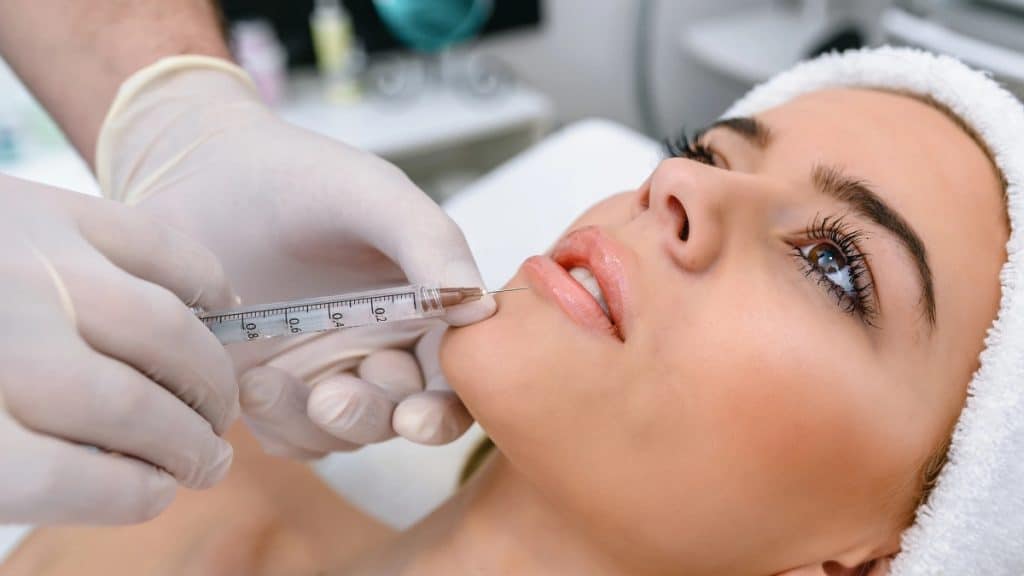In recent years, lip augmentation has become increasingly popular as a quick, non-invasive way to enhance one’s appearance. By creating fuller, more defined lips, lip fillers have become a go-to choice for many. However, a crucial question arises: can you get lip fillers while pregnant? Pregnancy introduces various physiological changes, and understanding the potential risks and considerations for cosmetic treatments like lip augmentation during this period becomes essential. This article explores whether lip filler treatments are safe for pregnant women, addressing potential risks, medical advice, and alternative options.
Understanding Lip Fillers
Lip fillers are commonly used for lip augmentation, providing an effective method to enhance lip volume and shape. They also smooth out wrinkles around the mouth.
Types of Lip Fillers
Different types of lip fillers cater to various aesthetic needs and preferences in lip augmentation.
- Hyaluronic Acid Fillers: Commonly used fillers like Juvederm and Restylane contain hyaluronic acid, a substance naturally found in the body. These fillers are praised for their safety and minimal risk of allergic reactions.
- Collagen-Based Fillers: Previously popular, these fillers are less common now due to higher risks of allergic reactions and the need for pre-testing.
- Other Fillers: Options like poly-L-lactic acid and calcium hydroxylapatite offer different benefits and are used for specific cosmetic needs.
Common Uses and Benefits of Lip Fillers
Lip fillers are a widely sought-after option for those looking to enhance their appearance through lip augmentation, offering several aesthetic and practical benefits.
- Enhancing Lip Volume and Shape: Lip augmentation is primarily achieved through the use of fillers to make lips fuller and more aesthetically pleasing.
- Smoothing Wrinkles: Fillers help reduce fine lines around the mouth, providing a youthful appearance.
- Quick Procedure: Typically, the treatment takes less than an hour, and results are visible almost immediately.
Potential Risks of Lip Fillers During Pregnancy
When considering lip augmentation during pregnancy, several potential risks need to be evaluated due to the lack of comprehensive research on this subject.
Lack of Research on Safety
There are no extensive studies that conclusively prove the safety of lip fillers for pregnant women. The absence of data makes it difficult to predict the exact effects on pregnancy, urging caution in such cosmetic decisions.
- Absence of Studies: The lack of specific research leaves many questions about the safety and potential long-term effects of fillers during pregnancy unanswered.
- Theoretical Concerns: Without concrete data, any potential risks to fetal development remain speculative but should not be dismissed.
Potential Adverse Reactions
Pregnancy brings about significant hormonal and physiological changes, which can influence how the body reacts to fillers.
- Allergic Reactions: Although rare, there is a risk of hypersensitivity to the ingredients in fillers. Pregnancy may heighten this risk due to changes in the immune system.
- Injection Site Reactions: Common side effects like swelling, bruising, and infection could be exacerbated during pregnancy.
- Hormonal Impact: Hormonal fluctuations may alter the body’s response to fillers, potentially affecting their efficacy and leading to unpredictable reactions.
Medical Considerations
Before opting for any cosmetic procedure during pregnancy, consulting with a medical professional is essential.
Consulting with a Medical Professional
- Healthcare Provider Advice: It is crucial to seek personalized advice from a healthcare provider who can assess individual risk factors and overall health.
- Evaluating Health Conditions: Factors such as existing health conditions or complications in pregnancy need to be evaluated to determine the suitability of undergoing lip augmentation treatments.
Possible Effects on Pregnancy
While there is no clear evidence, the potential interaction between fillers and pregnancy-specific changes raises concerns.
- Interaction with Pregnancy: Fillers might interact with the body’s changes during pregnancy in unknown ways, necessitating careful consideration.
- Impact on Fetus: Even though direct effects on the fetus are largely theoretical, the lack of data makes it advisable to avoid unnecessary risks.
Alternatives to Lip Fillers During Pregnancy
Given the potential risks, exploring safer alternatives for lip augmentation during pregnancy can be a prudent choice.
Non-Invasive Cosmetic Options
- Plumping Lip Glosses: These products offer temporary volume enhancement without the risks associated with medical procedures.
- Makeup Techniques: Highlighting and contouring can create the illusion of fuller lips without any invasive treatments.
Postponing Cosmetic Treatments
- Benefits of Waiting: Delaying lip augmentation until after childbirth eliminates the risk of unknown effects on the pregnancy.
- Post-Pregnancy Options: Once the pregnancy is over, more permanent cosmetic solutions can be considered without compromising safety.
Case Studies and Expert Opinions
Gathering insights from both medical experts and real-life scenarios provides valuable perspectives on this issue.
Insights from Cosmetic and Medical Experts
- Dermatologists’ Perspectives: Many dermatologists advise against elective cosmetic procedures during pregnancy due to the potential unknown risks.
- Obstetricians’ Opinions: Obstetricians often prioritize maternal and fetal safety, recommending that cosmetic enhancements be postponed until after delivery.
Case Studies
- Real-Life Examples: Anecdotal evidence from women who have chosen or avoided fillers during pregnancy offers practical insights into the outcomes and considerations.
- Outcomes and Lessons: Analysis of these cases highlights the importance of weighing the risks and benefits carefully.
Conclusion
In summary, while lip augmentation offers an attractive option for enhancing one’s appearance, its safety during pregnancy remains uncertain due to the lack of definitive research. Potential risks such as allergic reactions, adverse injection site reactions, and unknown impacts on the fetus make it advisable for pregnant women to err on the side of caution. Consulting with healthcare professionals, considering non-invasive alternatives, and postponing cosmetic treatments until after pregnancy are recommended steps. Prioritizing the health and safety of both mother and baby should always take precedence over cosmetic desires during this critical period.
